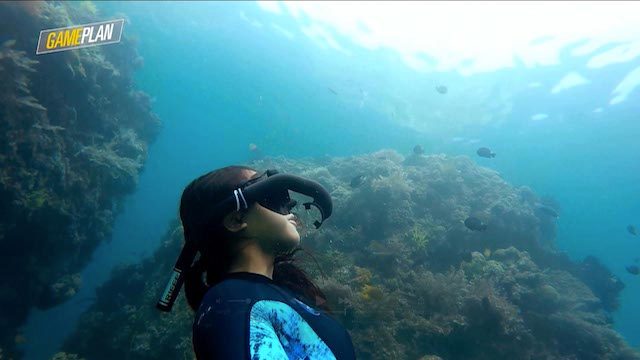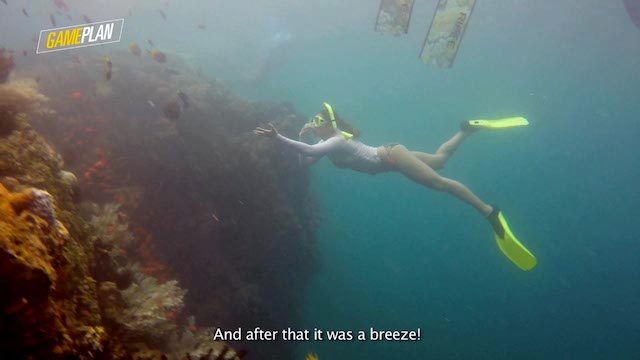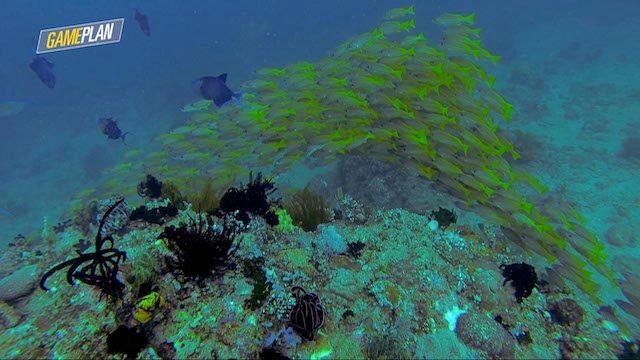SUMMARY
This is AI generated summarization, which may have errors. For context, always refer to the full article.

BATANGAS, Philippines – International marine scientists have declared the Philippines as the center of marine biodiversity in the world in 2006, surpassing the Great Barrier Reed of Australia. Gameplan hosts Graham Caygill, Mara Lopez and Katz Salao took a quick trip to Anilao, Batangas to see its beauty by learning the basics of skin diving from the Reef Nomads – a skin diving tour group in the country.
Skin diving simply means to swim underwater without tanks, using only snorkeling masks and fins to explore underwater. “Free diving is usually seen as a competitive sport while skin diving is more recreational. It’s more to see marine life up close,” differentiated Sara Erasmo, one of the founders of Reef Nomads.
The skin diving session starts with breathing exercises, equalization lessons, and a run through of breathing techniques to stay longer underwater. These techniques are then practiced in a basic shore entry dive.
“You don’t realize that even if you go down just five meters, it already affects your breathing and your ears. So the first few times I kind of struggled. But I got more comfortable and more confident and I could stay down for longer, swim around, and enjoy it more,” shared Graham.

Anilao is just a two to three hour drive from Manila and is teeming with skin diving hotspots. “I’m proud of the Philippines. It’s amazing that the fish and marine life is just right on our doorstep. It’s like being in a different planet,” said Graham.
During their dive however, the three hosts kept finding pieces of trash floating in the ocean. Water baby and experienced diver Mara Lopez expressed concerns on environmental degradation. “There’s really no place like the ocean that can make me feel like this. But the sad truth is that it’s dying. Our oceans are dying because of climate change and pollution,” she said.
The best way to appreciate our rich marine life is to dive down and see it for your self. It is when you see its beauty that you begin to realize all the reasons why it’s worth protecting.

“Turtles think plastic are jellyfish so they eat it and then they die. I think [that] people should realize that them as one person matters a lot. If they throw their plastic properly, that’s one less plastic in the ocean,” shared Katz. – Rappler.com
Add a comment
How does this make you feel?
There are no comments yet. Add your comment to start the conversation.